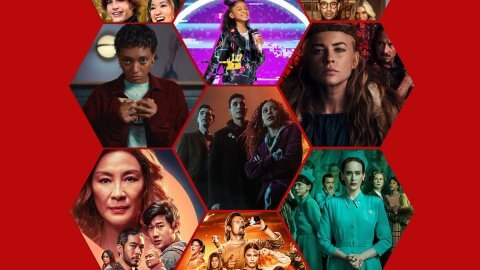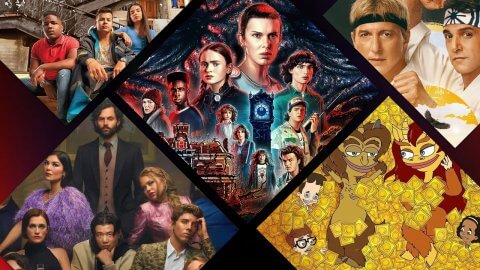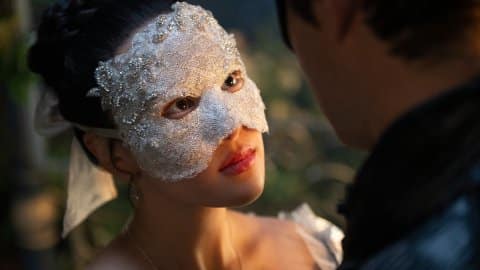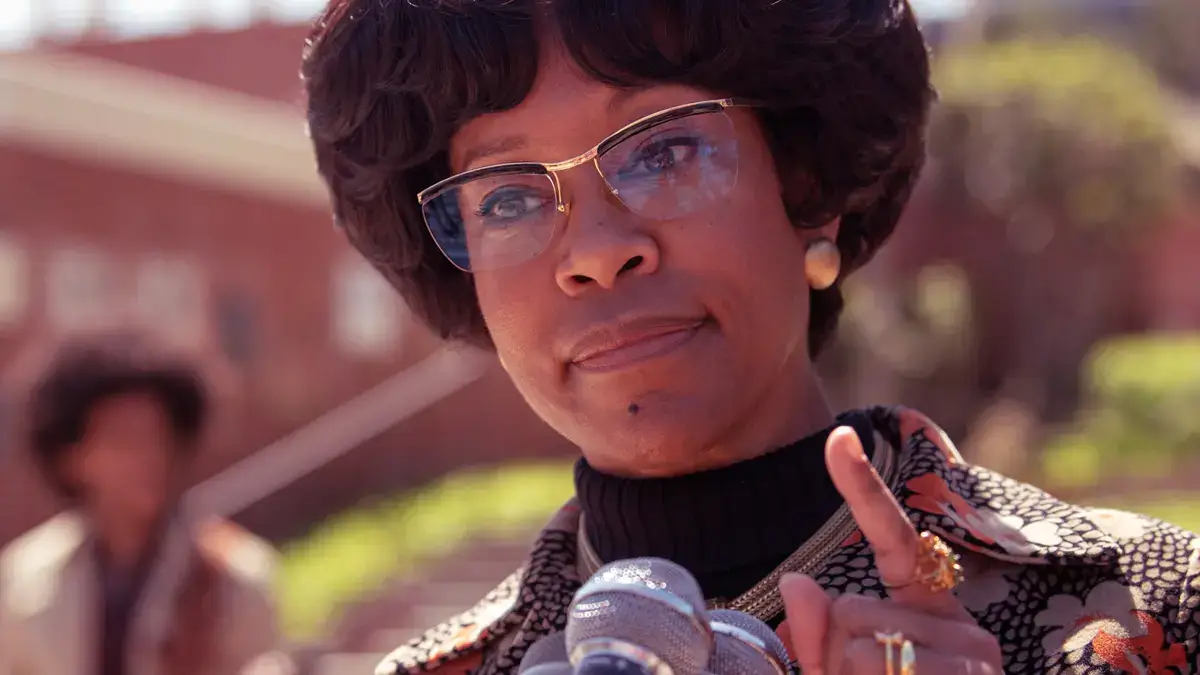
SHIRLEY. Regina King (Producer) as Shirley Chisholm in Shirley. Cr. Glen Wilson/Netflix © 2023.
Finally released in 2024 after being pushed from its original 2023 date, Shirley is the long-awaited collaboration from its star Oscar winner Regina King (If Beale Street Could Talk, The Harder They Fall) and its director John Ridley (Five Days at Memorial, Godfather of Harlem), who discussed the trailblazing political figure Shirley Chisholm as far back as the middle of last decade when the pair worked together on American Crime.
Shirley displays an intimate portrayal of political icon Shirley Chisholm, the first Black Congresswoman and the first Black woman to run for President of the U.S., and the cost of accomplishment for Shirley herself. The film tells the story of Chisholm’s boundary-breaking and historic presidential campaign, based on exclusive and extensive conversations with family, friends, and those who knew her best.
Alongside King as the titular figure, the cast features recently passed character actor extraordinaire Lance Reddick (John Wick franchise, The Wire) as Shirley’s trusted advisor Wesley McDonald ‘Mac’ Holder, Oscar nominee Terrance Howard (Crash, Iron Man) as Arthur Hardwick Jr., fellow Oscar nominee Lucas Hedges (Manchester by the Sea, Waves) as Robert Gottlieb, & Netflix veteran Andre Holland (Passing, High Flying Bird, The Eddy) as Walter Fauntroy.
Coming off a year in which the Civil Rights era biopic Rustin garnered a Best Actor nomination for Colman Domingo, Netflix is most likely hoping for a similar outcome for Regina King in Shirley. Of course, the studio is well known for churning out biopics of famous people & political events, including Oscar nominees The Trial of the Chicago 7 and Nyad, as well as the young Barack Obama film Barry and the atheist activist Madelyn Murray O’Hair story The Most Hated Woman in America.
However, with delayed release dates, re-shoots, and rumors of poor test screenings, Shirley seemed like it might be destined for a lesser outcome than its more successful predecessors. After seeing the film, I believe this to be closer to the truth.
Telling the story of Shirley Chisholm and her historic campaign is a worthy tale to tell. The best aspects of the film are in the DNA of Chisholm’s character and enduring legacy.
King and Ridley (as director and screenwriter) portray Shirley as a woman who never settled never wavered, and frequently used her values and faith to bring out the best in the people in her life. She also was an agent for change and an influence on the next generation of black & female politicians. The film’s final moments takes the time to show the fruits created from the seeds of Chisholm’s career; whether that be a positive action from former rival Gov. George Wallace after Shirley showed him grace and bonded with him over their failed assassination attempts or the future success of Democratic Congresswoman Barbara Lee who worked on Shirley’s presidential campaign.
While the merits of Chisholm’s story are undeniable, the film-making of said story can be often bland, poorly edited, and riddled with obvious exposition dialogue. The re-shoots seem fairly noticeable as the stitching together of certain scenes feel forced or fragmented in their construction.
Unlike Colman Domingo’s portrayal of Bayard Rustin, which leaped off the screen with energy and verve, King’s performance as Shirley is often so dry and understated that it stunts any significant events in the film and minimizes the balance of bravado, intelligence, audacity, and charm of Chisholm in real life that you can find in speeches and TV appearances online these days or in real-time for those that lived it.
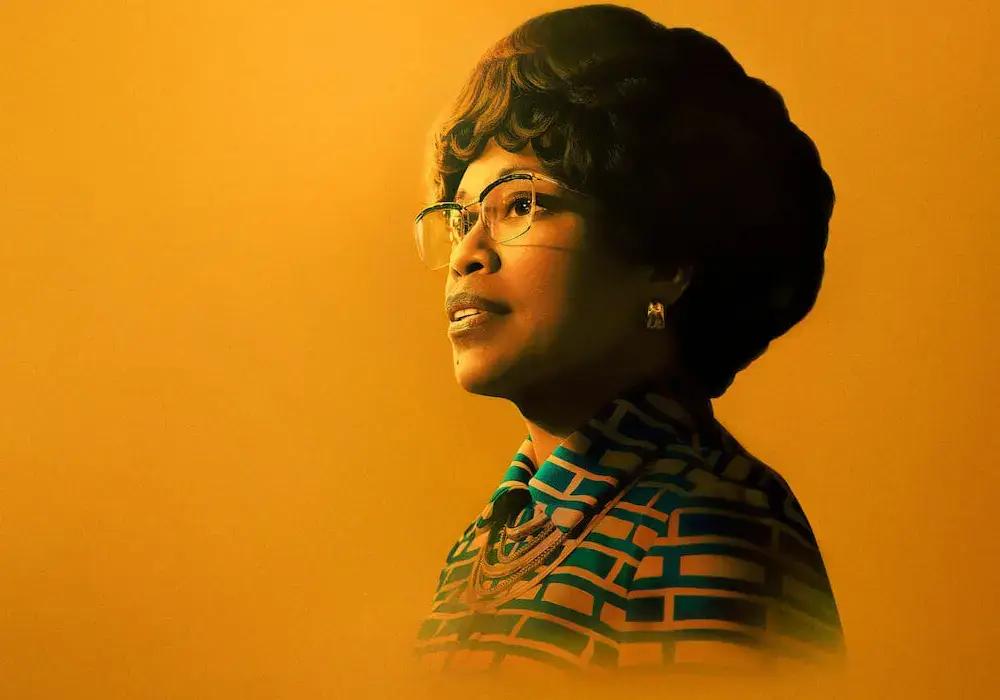
Picture: Netflix
The film doesn’t capture the “why” part of Shirley’s campaign and political desires. A promise to people in Florida after she already won her Congressional seat does not explain what makes her think she should and could do this all. She displays throughout that she is willing to risk her family’s opinions of her and her marriage to make this happen, but they don’t give enough of what drives her as a person to see why it was never a question. The film decides to make their claims on the forced speeches of supporting characters rather than scenes from Shirley’s past to bolster the claim of the present.
Overall, Shirley may be the story of a woman worth celebrating, but the film-making barely rises above a Wikipedia sense of Chisholm’s character and reach. The film feels sanitized and hesitant compared to the actual footage of Chisholm’s campaign trail that were filled with impassioned speeches and brazen interviews. King and Ridley should be applauded for bringing Shirley’s story back into our lives in such an election year, but it won’t be held in the same esteem as their Oscar-nominated peers.
Watch Shirley on Netflix If You Like
- Rustin
- Selma
- Barry
- Till
- One Night In Miami
- Red Tails
MVPs of Shirley on Netflix
Regina King and John Ridley
While I’ve made my case for why the film doesn’t ultimately rise to the level of Netflix Oscar-nominated biopics of the past, with that largely falling on its main creators, King and Ridley, the reason this film exists and why people who didn’t live it will remember the legacy of Shirley Chisholm also falls on King and Ridley, and that is a great thing.
In an election year where we’re forced to choose from two 75+-year-old white candidates whom we’ve voted on before, it’s a great reminder to look at political icons of the past who saw the landscape and decided to show people change was possible. As producers, director, writer, and star, King and Ridley took up the cause to get Shirley Chisholm’s story made for a mass audience on the largest platform available and got it done. While the film-making doesn’t always work, the spirit and story of Shirley always will, and they knew it was worth fighting for.
The job of the biopic is to entertain & inform above that from a documentary or biography; Shirley doesn’t quite give us enough of her personality and political savvy to make us want to take this historic ride with her.


 Rating: PG-13
Rating: PG-13